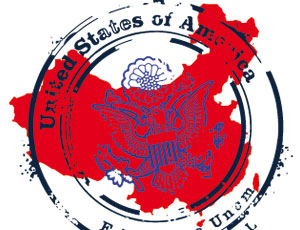Letters from America: Due Diligence and China Joint Venture Expiration Dates
This is Part II of our ongoing Letters from America to Asia Series, featuring opinions and observations on America’s trade relations with China and emerging Asia from Chris Devonshire-Ellis.
 Oct. 8 – Attending an all-day U.S.-China trade event in the mid-West this past week, I was delighted to note that our lunch speaker was to be an experienced Chinese businesswomen. I’ll call her Ms. Wong. As one from the generation who took full advantage of China’s opening up following Deng’s reforms, she had obtained a degree at Tsinghua in foreign trade, and then, upon being offered an American scholarship, left to study in the United States. Ms. Wong has never returned to China, with the exception of business trips; mainly of the sort that introduce China to the wonder of her traveling executives over the years. During her time in the United States – now over 20 years, during the same period I actually decamped to China – she has represented several major American MNCs at board level and today is in charge of her MNC employer’s Asian supply chain.
Oct. 8 – Attending an all-day U.S.-China trade event in the mid-West this past week, I was delighted to note that our lunch speaker was to be an experienced Chinese businesswomen. I’ll call her Ms. Wong. As one from the generation who took full advantage of China’s opening up following Deng’s reforms, she had obtained a degree at Tsinghua in foreign trade, and then, upon being offered an American scholarship, left to study in the United States. Ms. Wong has never returned to China, with the exception of business trips; mainly of the sort that introduce China to the wonder of her traveling executives over the years. During her time in the United States – now over 20 years, during the same period I actually decamped to China – she has represented several major American MNCs at board level and today is in charge of her MNC employer’s Asian supply chain.
It’s quite a story, albeit one that I have seen repeated many times, and Ms. Wong’s experience and value she has brought to her employers has without doubt been a tremendous asset. Yet there was one portion of her related anecdotes I found both alarming, yet totally able to relate to. Discussing obtaining fluency in English, she described then being asked to translate documents, including articles of association for JV contracts and other contractual trade agreements, from English into Chinese.
She then confessed that actually, fluency in English could be measured in two ways – fluency in communicative English, and fluency in professional, technical English. Admitting the former but not the latter (“I had no training in English language technical terms”), Ms. Wong revealed that only about 70 percent of the content of the English language documents she had been given had been translated into Chinese. Words or phrases she didn’t, or couldn’t, understand were simply omitted. And then came the cruncher “But it seemed to be OK as the Chinese accepted them.”
I didn’t say anything, yet was privately appalled, knowing full well from the work my firm does in handling foreign investment into China that a lack of translation or even nuances between the English and Chinese languages can spell big trouble, especially for the foreign party. The Chinese will of course accept contracts favorable to them, and I would hate to discover what had been left out of Ms. Wong’s English language translations.
However, Ms. Wong’s confession does bring home the necessity of being careful of not loading too much responsibility upon expat employees in the United States. Whether they are Chinese, French or Brazilian, it is simply too risky to give them carte blanche over translations, no matter how good their English language skills may appear to be. The issue to be aware of here is that if there are differences between the English language and Chinese language versions, under Chinese law the Chinese language version prevails. If Ms. Wong omitted translating any English language content or terms into Chinese, they will not be valid.
I suspect as a result we may begin to see a run of JV and other contracts develop systematic and hidden problems, even though outward appearances and behaviors may have appeared normal in terms of operations to date. Many contracts, especially joint ventures, that were entered into 15-20 years ago are now coming to the end of their terms, and it is impossible to say what may or may not have been signed off at that time as concerns the extension or renewal of these.
My tip to legal counsel in possession of JV contracts in China that are coming to the end of their shelf life is to dig them out and quietly get experienced counsel, familiar with both China and English terms and with proven China experience (and by this I mean within China itself) to evaluate the implications of the period of the contract and what happens when that arises. There are a number of possibilities, including clauses I have seen that give the potential right for the Chinese party to take over the entire operation for a nominal fee. And we have already seen issues with the granting of extensions to JV contracts awarded to every single one of the Big Four accounting firms.
It would be prudent for foreign investors in China to examine what happens when their own JV contracts also arrive at the point of expiry. Forewarned is forearmed, and some due diligence concerning the implications now by actively comparing the English and Chinese content may avert problems caused by the likes of Ms. Wong’s no doubt enthusiastic, but ultimately not fully completed, translated terms and conditions when originally drafted all those years ago.
Chris Devonshire-Ellis is the principal and founding partner of Dezan Shira & Associates, and spent 20 years in China developing the firm. He is now based in North America and regularly travels across the region on road trips meeting with clients and attending events.
Dezan Shira & Associates can advise over matters concerning joint venture contracts in China and has done so since 1992. To discuss JV contractual issues with the firm in full confidence, please email legal@dezshira.com.
Related Reading
 Setting Up Joint Ventures in China (Third Edition)
Setting Up Joint Ventures in China (Third Edition)
This guide walks you through, step-by-step, each of the key points of setting up a joint venture in China. It includes a complete draft of both a JV contract and articles of association as well as an overview of JV laws, negotiation issues, land use rights, IP protection and technology transfer, in addition to tips on staff hiring and HR. It also describes tax and audit responsibilities in addition to buying out a JV partner and liquidating.
Reevaluating China Joint Ventures and M&As
In this issue of China Briefing Magazine, we take a fresh look at joint ventures and M&As in China – the current market circumstances, the motivations and challenges faced – and provide a few practical insights into key issues such as forming a joint venture contract and finding an M&A partner.
The Complete ‘Letters from America to Asia’ Series
A complete list of past articles from our ongoing ‘Letters from America to Asia Series’ featuring opinions and observations on America’s trade relations with China and emerging Asia.
Co-Investing in China with Chinese Partners
Joint Ventures in China: Equity and Capital Requirements are Not the Same Thing
- Previous Article Limiting Tax Exposure for American Expatriates in China
- Next Article China Releases Circular on Foreign Medical Devices

























